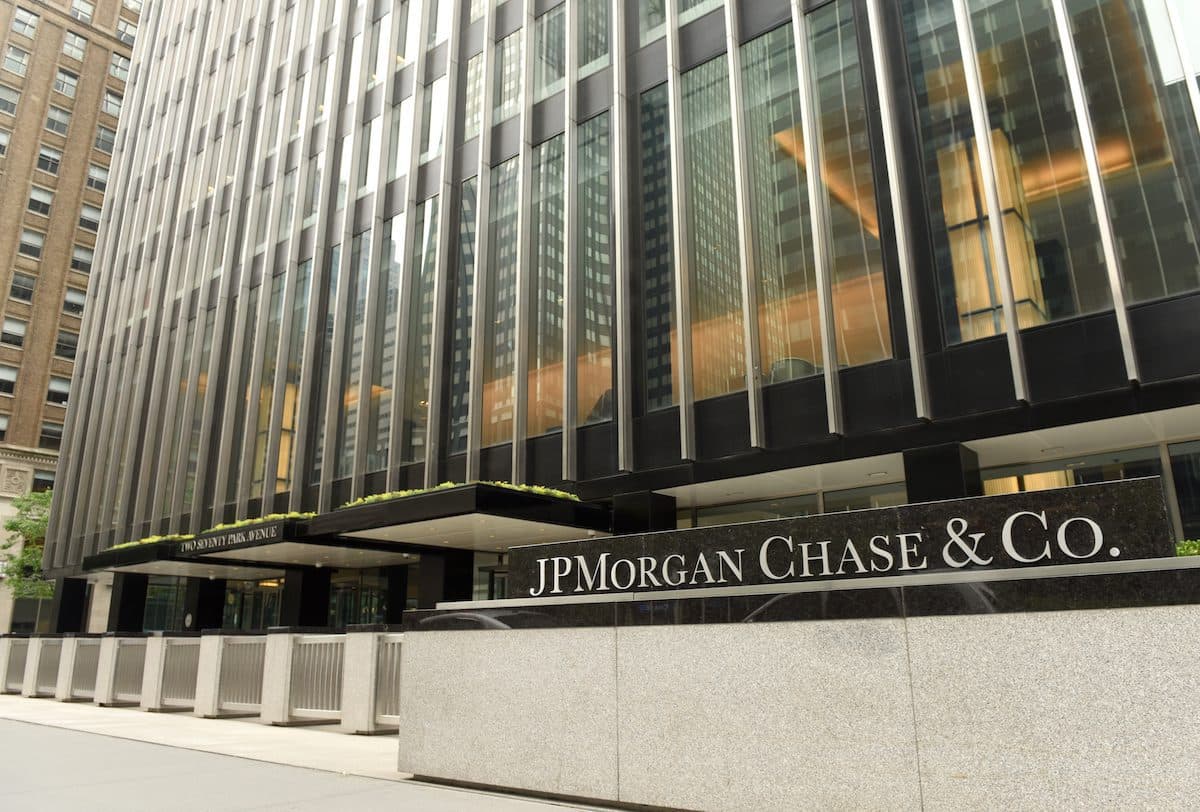JPMorgan Prepping to Offer Managed Bitcoin Fund: Report
Adam Blumberg, cofounder at Interaxis, a digital assets education and training company for financial advisors and investors, suggested the bank may be calling it “actively” managed to justify some of the fees it charges, or will charge.

Source: Shutterstock
- Last month the bank filed for a “Cryptocurrency Exposure Basket” that includes Microstrategy, Square, PayPal, CME Group, Overstock and Silvergate Capital stock
- NYDIG would serve as its custody provider
JPMorgan Chase is reportedly preparing to offer an actively managed bitcoin fund to its private wealth clients this year with NYDIG serving as its custody provider.
The bank did not comment on the story, first broken by CoinDesk this morning, so details are still under wraps, but the announcement has caused many to scratch their heads about how the fund would work and what about it would be “active”. JPMorgan also declined to comment for this story.
Typically, a fund manager or management team makes decisions about how to invest an actively managed investment fund’s money and there are usually other assets in the fund to help them rebalance the portfolio as needed.
Adam Blumberg, cofounder at Interaxis, a digital assets education and training company for financial advisors and investors, suggested the bank may be calling it “actively” managed to justify some of the fees it charges, or will charge.
“When you think of a passive fund you think you shouldn’t have to pay very much for it—you’re not doing that much,” he said. For example, “An S&P index fund never costs very much, the managers never have to do much research, they know exactly which companies are in the S&P 500 and in which amounts,” he added.
Meeting digital asset demand
Institutional interest in bitcoin has continued heating up this year, with financial institutions searching for ways to meet client demand for digital assets. For example, at the beginning of the month Morgan Stanley began offering clients access to passively managed bitcoin funds from NYDIG and Galaxy Digital.
Last month the bank filed for a “Cryptocurrency Exposure Basket” that includes MicroStrategy, Square, PayPal, CME Group, Overstock and Silvergate Capital stock. JPMorgan believes those companies “to be, directly or indirectly, related to cryptocurrencies or other digital assets.”
Around the same time it also distributed a report to its Private Bank clients (who maintain a balance of $10 million) that said bitcoin can be a portfolio diversifier “if sized correctly,” among other things.
An expected step
There are a number of ways to actively manage a single asset product, according to Alexander Blum, a managing partner at Two Prime, a firm that provides digital asset management focused on shrives for institutional investors, family offices and high net-worth individuals.
Fund managers can time entries and exits into bitcoin, buying and selling with dollars as statistical indicators point to opportune times, Blum said. Another strategy involves them using options strategies to statistically manage risk. Two Prime, for example, hedges with put buying to manage the maximum losses possible during drawdowns.
They can also lend bitcoin to earn extra yield relative to a passive strategy, trade spot against futures to earn extra yield from premiums on futures, or sell option premiums to earn extra yield.
Blum called it “an expected step in the maturation of the crypto asset management field.”
“The trusted reputation of JPMorgan will allow for investors to overcome their doubts about bitcoin and will continue to usher in more investment in the field,” Blum said. “With an increasingly robust options, futures and lending market for bitcoin, the ability to manage risk, earn additional yield, and counteract outsized volatility moves will appeal to a broader swath of investors.”
Blum said Two Prime is seeing “large demand” from both long-time investors bitcoin and ether investors looking to protect their holdings from downside moves and “first-time crypto buyers” fearful of the volatility risk; as well as “corporate treasury clients looking for an inflation hedge,” who are more conservative with their risk appetites.
Since Two Prime opened its fund to outside investors in February, it has received commitments tripling the fund to about $100 million.
“Financial advisors that we are working with say, ‘our clients are asking about it, and we need to know about it,’” Blumberg said. “Those advisors, whether they can actually advise on it or not, want to learn because their clients are asking. So that has to be the same for the private wealth clients at JPMorgan.”






